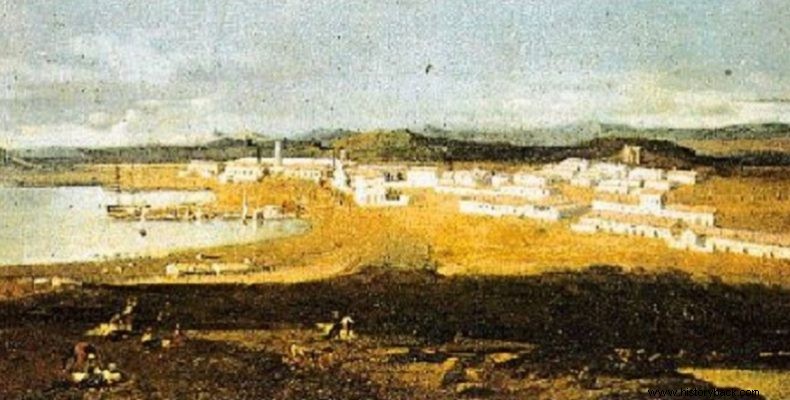
The silver mines of Lavrio have been known since ancient times. From the revenues of these mines was created the powerful Athenian fleet that crushed the Persians in Salamis. However, there were surface ores of silvery lead in the area.
In 1864 the Italian businessman Ioannis Baptistis Serpieri (Serpieri), owner of mines in Cagliari, Sardinia, when he read the studies of mineralogist Andreas Kordellas to the Greek Ministry of Finance, with which he persistently supported the feasibility of reopening the Lavrio mines, he came to Greece in 1863 as a representative of a European company.
He bought from the monastery of Pentelis and the community of Kerateas a total area of 10,791 acres, in which there were piles of slag from the ancient mines and proceeded in April 1864 to establish the Italo-French company Roux-Serpieri-Fressynet C.E. in Lavrio.
In the area, however, there were also heaps of mineral waste (slag heaps), over which the company did not have the right to exploit, although it insisted that it did. So soon the company broke with the Greek government over the exploitation of the estuary.
In fact, the Greek press, exaggerating, calculated that the value of the islands was enormous and could solve Greece's economic problem. The Koumoundourou government then passed a law by which it nationalized the estuaries, provoking the reaction of the company, but also of France and Italy, whose mediation the company demanded, even requesting compensation from the Greek government, in the amount of 15 million drachmas, a huge amount for the time.
The result of the conflict was the fall of the Koumoundouros government, but also of the Zaimis and Voulgari governments that succeeded it. A government was then formed under Epaminondas Deligiorgis, who was the first to stir up the issue of the islands. Deligiorgis demanded that the company appear before the Greek courts to resolve the dispute.
However, the governments of France and Italy reacted and demanded that the company's dispute with the Greek state be referred to international arbitration! France even openly threatened Greece, that if it did not accept the arbitration, its fleet would blockade the Greek ports! The policy of the gunboats in all its glory that is.
However, both Deliiorgis and King George did not succumb to the pressure. Then appeared Andreas Syngros, who, at the head of Greek capitalists, bought the company.
However, this development caused an incredible rise in the share price of the new company, which was not based on reality, since in the end the revenues from the explosions were not what was expected. So the stock collapsed, leading to financial ruin for the majority of shareholders.
